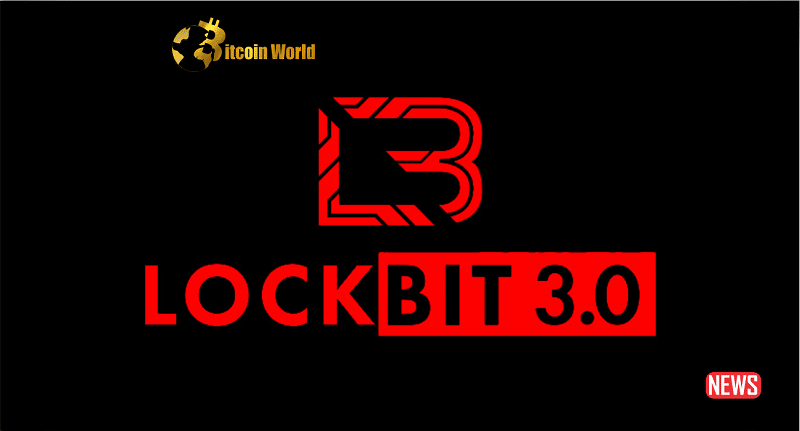Hold on to your digital wallets! News is circulating about a potential ransomware attack targeting Banco de Venezuela, the largest bank in the country. Whispers started on social media on April 19th, and now cybersecurity circles are buzzing about a possible breach claimed by the notorious LockBit ransomware group. While the bank hasn’t explicitly confirmed the attack, their statement neither confirms nor denies the unfolding situation. Let’s break down what we know and what it could mean for the millions of Banco de Venezuela account holders.
What Exactly Happened? The LockBit Allegation
Reports indicate that LockBit, a well-known ransomware operation, has allegedly posted about compromising Banco de Venezuela’s systems on their darknet portal. Specialized cybersecurity platforms have seemingly verified this claim, pointing to a potential breach of the bank’s domain, bancodevenezuela[.]com.
For those unfamiliar, ransomware is like a digital hostage situation. Imagine your computer files suddenly becoming encrypted, locked away behind a digital wall. That’s what ransomware does. Cybercriminals like LockBit then demand a ransom, typically in cryptocurrencies like Bitcoin, to provide the key to unlock your data.
Banco de Venezuela’s Response: All Systems Normal?
Interestingly, Banco de Venezuela issued a statement stating that their “platform and electronic channels are operating normally and providing the usual service, with complete integrity and security.” This suggests that the core banking infrastructure might not be directly affected, meaning you can likely still access your online banking and make transactions.
The Silent Threat: Data Exfiltration
However, the story might not end there. Even if the bank’s operational systems are intact, there’s a significant concern: data exfiltration. Think of it like this: the attackers might have copied sensitive information before encrypting anything. This means they could be holding valuable data hostage, demanding a ransom not to disrupt services, but to prevent the release of confidential information.
What Kind of Data Could Be at Risk?
If the LockBit claims are true, what kind of information might have been compromised?
- Internal Bank Operations Data: This could include sensitive financial records, strategic plans, and other internal documents.
- Customer Data: Potentially the most concerning, this could encompass personal details like names, addresses, account numbers, transaction history, and more. Considering Banco de Venezuela manages approximately 21.7 million accounts, the sheer volume of potentially exposed data is staggering.
The Ransom Deadline: A Ticking Clock
According to LockBit’s darknet posting, the alleged breach information was uploaded on April 19th. They’ve reportedly set a deadline of May 10th for the ransom payment (Caracas time). The exact ransom amount remains undisclosed, but LockBit is known to favor cryptocurrency payments, specifically mentioning Bitcoin, Monero, and Zcash.
What Happens if the Ransom Isn’t Paid? The Potential Fallout
The consequences of non-payment could be significant. LockBit has a reputation for following through on their threats. If the ransom isn’t paid by the deadline, the compromised data could be leaked on the dark web. What does this mean for Banco de Venezuela customers?
- Increased Risk of Phishing Attacks: With personal information exposed, customers could become targets of sophisticated phishing attempts, where criminals try to trick them into revealing further sensitive data.
- Potential for Illegal Account Access: Exposed credentials could allow cybercriminals to gain unauthorized access to bank accounts.
- Risk of Extortion: In some cases, individuals might be directly targeted for extortion based on the information leaked.
Why Cryptocurrencies? The Anonymity Factor
You might be wondering why ransomware groups like LockBit prefer cryptocurrencies like Bitcoin, Monero, and Zcash. The answer lies in the relative anonymity these digital currencies offer, making it more difficult for law enforcement to track and recover the ransom payments. Monero and Zcash, in particular, are known for their enhanced privacy features compared to Bitcoin.
What Can Banco de Venezuela Customers Do? Actionable Insights
While the situation unfolds, here are some crucial steps Banco de Venezuela customers can take to protect themselves:
- Be Extra Vigilant for Phishing Attempts: Be wary of suspicious emails, SMS messages, or phone calls asking for personal or financial information. Never click on unfamiliar links or download attachments from unknown sources.
- Monitor Your Accounts Closely: Regularly check your bank statements and transaction history for any unauthorized activity. Report anything suspicious immediately to the bank.
- Strengthen Your Passwords: Use strong, unique passwords for your online banking and other sensitive accounts. Consider using a password manager.
- Enable Two-Factor Authentication (2FA): If available, enable 2FA for an extra layer of security on your bank accounts.
- Stay Informed: Keep an eye on official announcements from Banco de Venezuela and reputable cybersecurity news sources.
The Bigger Picture: The Growing Threat of Ransomware
This alleged attack on Banco de Venezuela highlights the ever-increasing threat of ransomware attacks globally. No organization, regardless of size or sector, is immune. Ransomware groups like LockBit are becoming increasingly sophisticated, targeting critical infrastructure and demanding hefty ransoms. This incident serves as a stark reminder of the importance of robust cybersecurity measures for both individuals and organizations.
Conclusion: A Waiting Game with High Stakes
The situation surrounding Banco de Venezuela and the alleged LockBit ransomware attack remains fluid. While the bank maintains that its services are operating normally, the potential for a data breach looms large. The coming days leading up to the ransom deadline will be critical. For Banco de Venezuela customers, vigilance and proactive security measures are paramount. This incident underscores the critical need for robust cybersecurity defenses in an increasingly interconnected world, where the stakes for individuals and institutions are higher than ever.
Disclaimer: The information provided is not trading advice, Bitcoinworld.co.in holds no liability for any investments made based on the information provided on this page. We strongly recommend independent research and/or consultation with a qualified professional before making any investment decisions.


